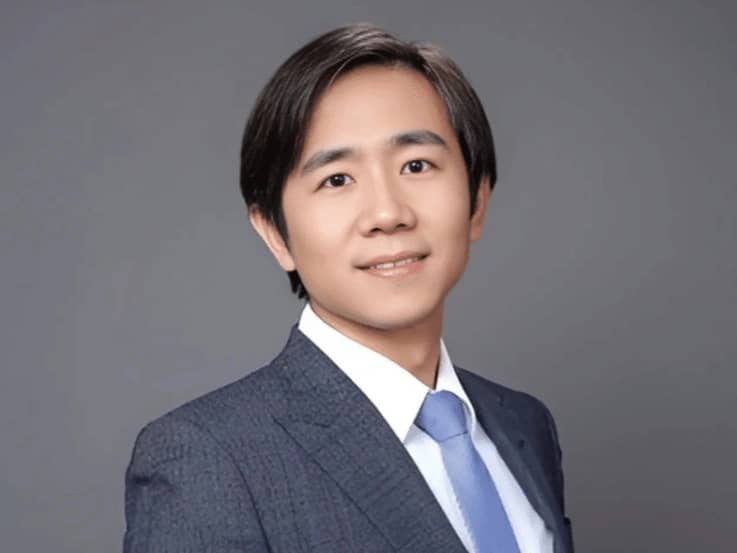订阅 wiki
Share wiki
Bookmark
Ming Wu
0%
Ming Wu
吴明是 0G Labs 的首席技术官,也是 Conflux Network 的联合创始人。他的工作主要集中在 区块链 可扩展性、协议开发以及推进技术研究基础方面。 [7]
教育
吴明于 1997 年至 2002 年就读于中国科学技术大学,并获得计算机科学学士学位。2007 年,他继续在中国科学院计算技术研究所获得计算机体系结构博士学位。他的研究重点是分布式事务处理系统、图计算引擎和人工智能平台。 [1]
职业生涯
吴明于 2007 年开始在微软亚洲研究院担任研究员,专注于分布式系统。在接下来的几年里,他于 2013 年晋升为首席研究员,并于 2017 年晋升为高级研究经理。他的工作重点是设计和实施大规模分布式机器学习系统,其中许多系统已集成到微软产品中。
在 2018 年完成博士学位后,吴明共同创立了 Conflux,这是一个 区块链 项目,他担任首席技术官 (CTO)。在这个职位上,他领导开发了旨在克服去中心化 区块链 网络中的性能限制,同时确保安全性和去中心化的系统。2024 年,吴明加入 0G Labs 担任 CTO,他将继续运用自己在分布式系统和 区块链 技术方面的专业知识。 [1]
访谈
0G 的 AI 愿景
在 2024 年 10 月的 0G Podcast 中,0G Labs 的联合创始人,包括首席技术官吴明、产品负责人 Michelle Tian 以及负责技术内容的 Lachlan Todd,概述了他们创建去中心化平台的愿景,该平台旨在增强 AI 应用的可扩展性和可用性。吴明讨论了他们使用 区块链 技术实现 AI 工作流程民主化的目标,同时还介绍了集成存储和计算资源的去中心化 AI 操作系统概念。Todd 详细阐述了 区块链 网络中数据可用性的挑战,以及 0G 旨在如何通过其创新架构(包括数据分区和无限可扩展性功能)来解决这些挑战。当他们探索该项目的潜在应用(尤其是在游戏和 AI 领域)时,该团队强调了与游戏公司的合作以及使 AI 工具更易于访问的努力。讨论的结尾是对即将到来的里程碑的期待,包括 主网 的启动,这将进一步扩展他们在 区块链 生态系统中的能力和合作伙伴关系。 [8]
小组讨论
AI 与加密货币构建
在 2024 年 11 月的 Devcon 上,关于 AI 和 加密货币 的小组讨论邀请了专家 Joshua Meng (Web is Open)、吴明、Luki Song (Chainbase) 和 Chi Zhang (KITE AI),由 Google Web3 的首席架构师 Adrien Delaroche 主持。小组成员分享了他们各自公司将 AI 与去中心化技术集成的举措的见解。他们讨论了 AI 在增强 区块链 空间中的用户体验和安全性方面的变革潜力,强调了去中心化 AI 网络对于实现数据和模型训练访问民主化的重要性。每位发言人都强调了 AI 集成的独特方法,包括创建去中心化操作系统、增强 Web3 应用的用户界面以及通过预测模型提高安全性。对话还探讨了去中心化 AI 的挑战和未来,强调了整个行业合作以实现有意义的进步的必要性。 [9]
FHE to AI
在 2024 年 10 月于新加坡举行的 TOKEN2049 的 FHECon 活动中,举行了一次小组讨论,参与者来自各种 AI 和去中心化技术项目。小组成员包括 Masha Prusso (Aethir)、吴明、Ethan Sun (MyShell)、Nick Emmons (Allora Labs)、Jiaohao Sun (Flock)。他们讨论了各自的创业项目,包括模块化 AI 解决方案、以创作者为中心的应用和联邦学习框架。重点强调了保护数据的重要性、围绕 AI 的隐私问题以及对创新型去中心化计算方法的需求。当每位小组成员分享关于他们项目以及在创建去中心化基础设施方面面临的挑战的见解时,他们强调了整个行业合作以推动 AI 进步同时确保用户隐私的潜力。总的来说,对话强调了人们越来越认识到 AI 技术和去中心化网络之间的交叉点,这是一种增强安全性和赋能创作者的手段。 [10]
发现错误了吗?
